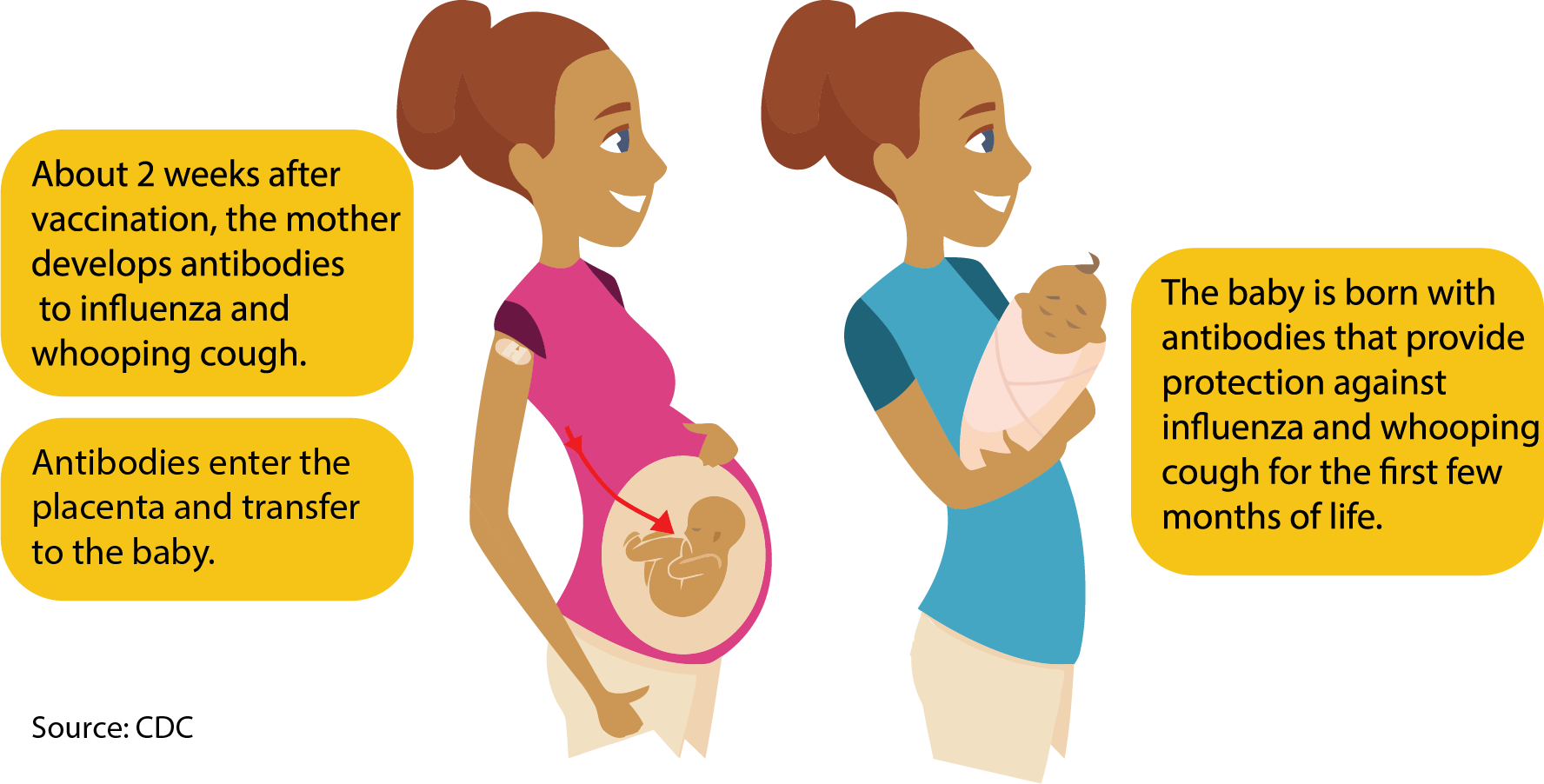What do I need to do to protect my baby?
You can begin protecting your baby from vaccine preventable diseases before he or she is even born. Be sure that you, your family, and anyone else who will come in contact with your baby are up-to-date with their vaccinations.
Many adults may be unaware that they need a pertussis booster (Tdap), a yearly flu shot, and a COVID-19 vaccine. Keeping those who surround your family disease-free creates a cocoon of protection for your baby during those crucial months before he or she is old enough to be vaccinated.
Pregnant women also need vaccines! Pregnant women should receive a pertussis vaccine (Tdap) between 27 and 36 weeks of pregnancy, during every pregnancy. This booster will keep mom healthy and will also help provide some immunity to her newborn baby, who will be particularly vulnerable to pertussis, a devastating and sometimes deadly disease on the rise nationwide. Pregnant women should be up to date on influenza and COVID-19 vaccines during their pregnancy. Flu and COVID-19 vaccines are safe for both pregnant women and their unborn babies at anytime during the pregnancy. And some of mom’s antibodies transfer to to baby offering protection.
Once your baby is born, be sure to follow the immunization schedule recommended by the CDC and supported by the American Academy of Pediatrics and the American Academy of Family Physicians.

© Voices for Vaccines. Excerpts and links may be used by websites and blogs, provided that full and clear credit is given to Voices for Vaccines, with appropriate and specific direction and links to the original content. Parents, providers, advocates, and others may download and duplicate toolkits in print, without alteration, for non-commercial use and with full and proper attribution only.
